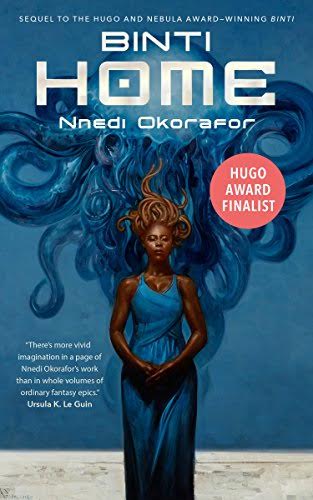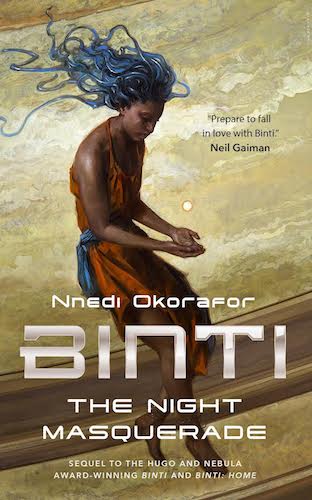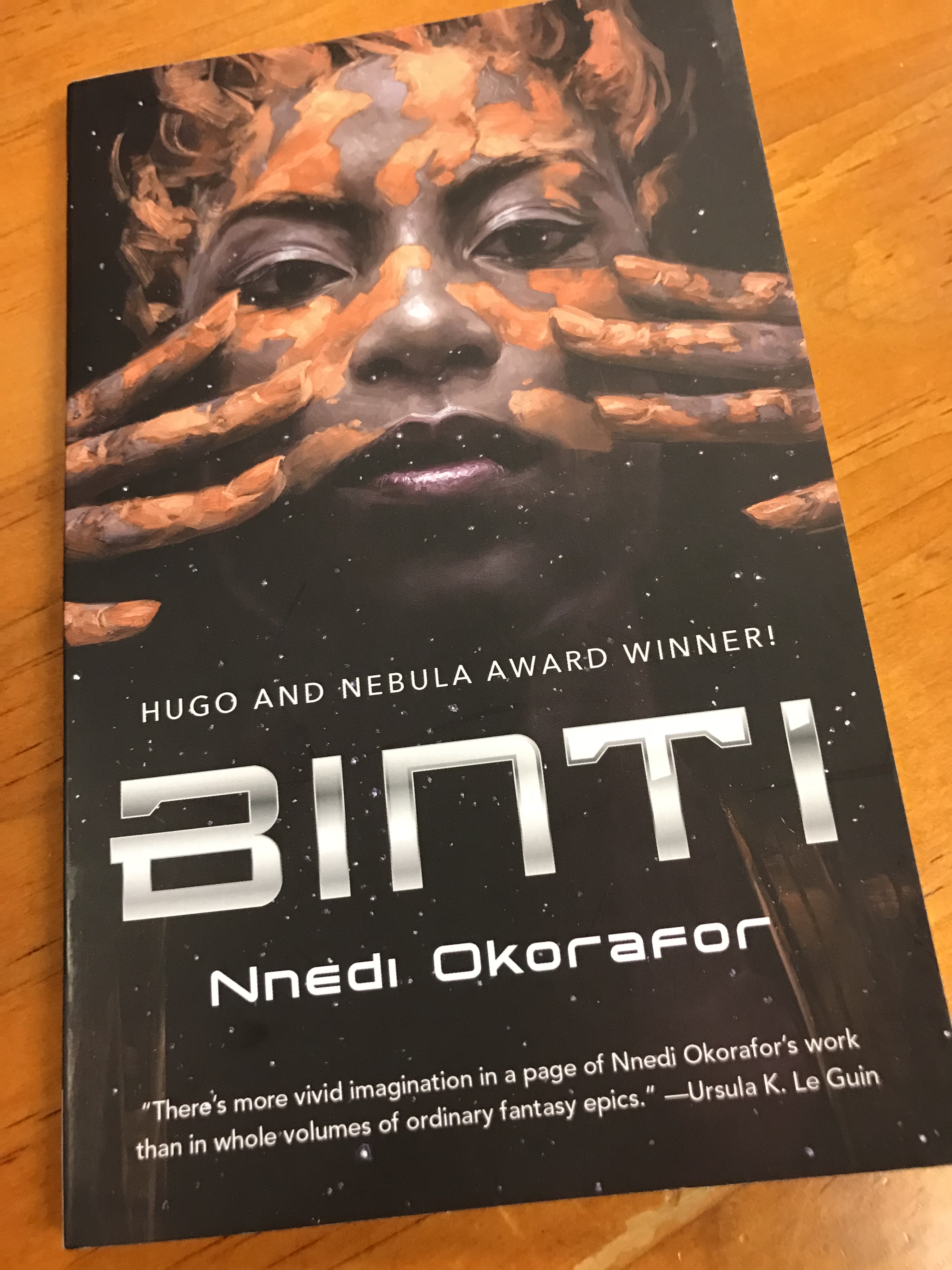Binti, Home, and The Night Masquerade together form the Binti trilogy of novellas written by Nnedi Okorafor. This blog post will focus on Binti: Home and Binti: The Night Masquerade, both of these novellas continue on from the original, Binti. In Binti the eponymous hero suffers and survives through a horrendous assault on the ship taking her to university, and is transformed in the process. I wrote previously about my thoughts on Binti, but needless to say I enjoyed it.

Binti: Home begins a year after the events in the first novella, and sees Binti longing for home and family, finally making the choice to go back with her companion Okwu, a Meduse alien. I don’t plan on getting into the specifics of either Home or The Night Masquerade, but suffice to say that the themes of both struck me as being about change and acceptance of change, racism, and inheritance.
Binti left her people and her family for a life, offworld, at Oomza University. Her experiences en route, described in ‘Binti’, as well as her time among the eclectic melange of cultures at Oozma University, change her. These changes are emotional, psychological, and most dramatically, physical. Binti: Home spends some time exploring how those changes, forced upon Binti by cruel circumstance, affect her personally. Binti is scarred, angry, and to some extent self-loathing, or at least ashamed of what she has become.
Binti’s return home is fraught with how she, changed, is accepted by her family. In Binti’s mind the image and memory she had of her home was one of love and acceptance, something that was the very core of who she was, but in the intervening year Binti was not the only thing to change. Time, as the saying goes, changes all. Binti and her family now both belong to different contexts, with different shared experiences, different perspectives and different aspirations.
The Binti Trilogy resonated for me with this theme, of change and how that change is denied, rejected and accepted. How the people and places we hold in our hearts do, after some time apart, grow stranger, and the bridge to understanding and accepting can be hard to find.
Racism is a key theme through the trilogy, with the alien Meduse; the arrogant ruling culture of Binti’s homeland, the Khoush; and finally with her own people, the Himba, and their attitude toward the desert people they know so little of. The realisation that dawns on Binti that her own people, repressed and treated as second class citizens by the Khoush, are guilty of classifying and dismissing the desert people in just the same manner. This realisation brings the theme of racism full circle, of how all of us, comfortable in that which is familiar and ‘like-us’ are all too prone to rejecting what isn’t.

Inheritance is another theme, it may not be the right term, but I choose it for a number of reasons. Binti’s cultural inheritance defines her, early on, and as she changes this recedes somewhat, but remains a core component of her being. The slings and arrows of outrageous fortune is another form of inheritance, something she did not choose, but which was hers to burden nonetheless, and which changed her in ways she had to grow to accept. The inheritance, last of all, of circumstance, like so many reluctant heroes, Binti did not choose to be caught in the mechanisms of culture and politics, of war and peace, but through circumstance it was something she inherited. As the saying goes, it is not what happens to us that defines us, but rather, how we choose to act in response.
The Binti trilogy is imaginative and expressive, alluring and dramatic, it deals with some powerful themes, and does so in a way that demands an emotional response. I thoroughly enjoyed the series, and have Akata Witch, also by Nnedi Okorafor, on my shelf waiting for me.

